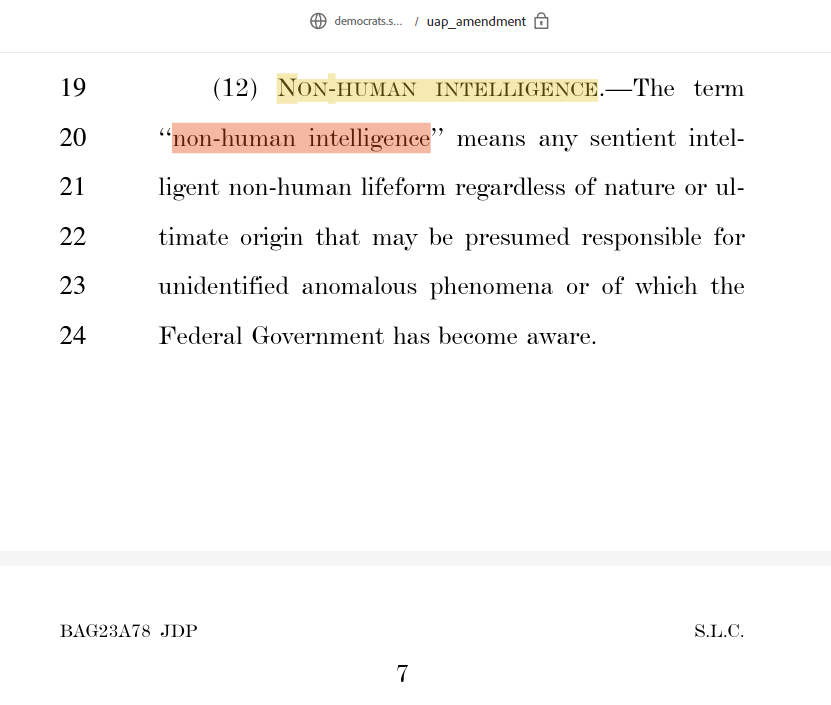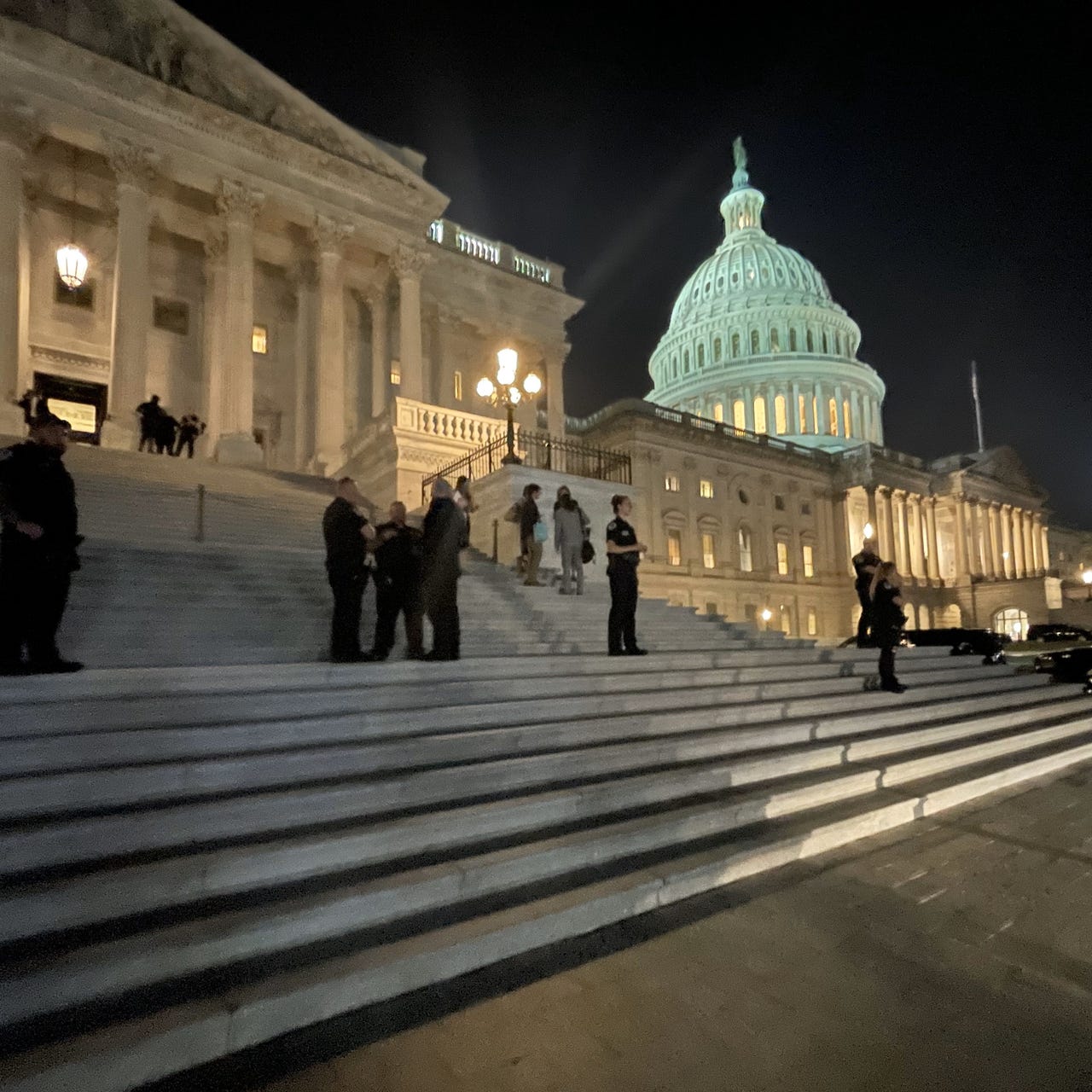Senate Majority Leader Chuck Schumer’s lead Republican co-author on the Unidentified Anomalous Phenomena (UAP) Disclosure Act of 2023, Sen. Mike Rounds (R-SD), tells Ask a Pol, the phrasing “non-human intelligence” — which their amendment uses 20 times — was on purpose, even as it’s confused some folks.
“It was not by accident. Let's put it that way,” Rounds told Matt Laslo on Thursday, July 20.

Below find a rough, partial transcript of Ask a Pol’s interview with Sen. Mike Rounds, slightly edited for clarity.
“Well, pretty simple terms, aren't they?” Rounds told Ask a Pol.
“But, could that be AI?”
“Could be,” Rounds says. “Could be.”
“So it's that broad?”
“It was not by accident. Let's put it that way,” Rounds says. “I wish I could say more, but that's just, I mean, we tried to keep it as simple as possible.”
Schumer and Round’s broadly bipartisan UAP amendment is included in the Senate version of the National Defense Authorization Act (or NDAA), which passed just before lawmakers hit the exits.
When lawmakers return from their monthlong August break, it still must be reconciled with a competing House version, which has become a political battleground for the touchiest of touchy social issues.
This interview stems from a question from an Ask a Pol subscriber. Join the conversation changing Washington!
Matt Laslo is a veteran congressional correspondent and founder of Ask a Pol—a people-powered press corps. Find him on most social media @MattLaslo.
Camila Aponte and Noah Kolenda contributed to the production of this transcript.
We’re @Ask_a_Pol or @askpols on Insta. Take typos up with Congress (and ping us, please! Our apologies in advance).















Share this post